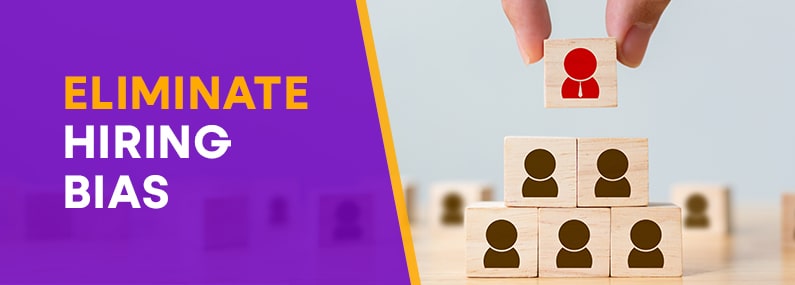In today’s fast-paced business world, the recruitment and hiring process has seen a significant transformation, primarily driven by the integration of artificial intelligence (AI).
With AI offering innovative tools to streamline operations and address bias, businesses are finding new ways to ensure fairness and efficiency in their hiring practices. Let’s dive into how AI is revolutionising recruitment, the benefits it brings, the challenges it poses, and what the future holds for this transformative technology.
The Power of AI in Recruitment
The impact of AI on hiring is substantial, with a recent survey from the Society for Human Resource Management (SHRM) revealing that a remarkable 79% of employers incorporate AI into their recruitment and hiring procedures.
This statistic underscores the growing adoption of AI-driven practices, marking a shift towards data-driven and unbiased recruitment strategies.
The role of AI in recruitment isn’t novel; automated applicant tracking systems have been scanning resumes for decades. What’s different now is the breadth of AI’s influence.
From conversational virtual assistants interacting with candidates to video interviewing software that analyses facial expressions and speech patterns, AI has permeated various stages of the hiring process. It also extends to candidate testing software that evaluates personality, aptitude, skills, and cultural fit.
A Glimpse at AI Applications in Recruitment
- Resume and cover letter scanners: These systems hunt for targeted keywords, ensuring a match between candidates’ qualifications and job requirements.
- Conversational virtual assistants: These chatbots engage with candidates, screening out those who don’t meet the employer’s criteria.
- Video interviewing software: AI assesses candidates’ facial expressions and speech patterns, offering insights into their potential fit for the role.
- Candidate testing software: This evaluates applicants based on personality, skills metrics, and even measures of culture fit.
The Complex Landscape of Public Perception
While AI’s potential in recruitment is undeniable, public opinion on its usage is mixed. A comprehensive survey by the Pew Research Center uncovered intriguing insights into the public’s attitudes towards AI in workplaces.
“The survey revealed that while there’s opposition to AI being used for final hiring decisions and analysing firing decisions, there’s a notable belief that AI could positively impact evaluating job applicants fairly and addressing biases, particularly race and ethnicity.”
This diversity in opinions highlights the complexity of introducing AI into recruitment processes. Striking a balance between the advantages of AI-driven insights and concerns about privacy and fairness is a challenge that businesses must navigate.
Overcoming Hurdles: AI’s Potential to Eliminate Bias
Despite challenges, the potential benefits of using AI to eliminate bias in hiring are immense. One of the most significant advantages is the speed and accuracy with which AI analyses applications.
Human biases, both conscious and unconscious, can mar traditional hiring processes.
Conversely, AI evaluates candidates based on objective criteria, dramatically reducing the potential for bias. It can lead to a more diverse and inclusive workforce, fostering innovation and broader perspectives within the organisation.
AI-driven systems also ensure consistent evaluation of all candidates. By assessing qualifications and skills impartially, AI eliminates the risk of specific candidates being favoured due to unrelated factors. This consistency guarantees that all applicants receive a fair assessment, regardless of their background.
Navigating Challenges: Privacy and Perception
However, the journey to AI-driven recruitment has its challenges. Privacy concerns and the perception of continuous surveillance can cause discomfort among employees.
The Pew Research Center survey reinforces this, revealing that a significant 81% of adults fear AI’s presence might lead to inappropriate monitoring of employees. Striking the right balance between harnessing AI’s benefits and ensuring employee privacy is a crucial challenge that businesses must address.
Forging the Path Ahead: Collaboration and Transparency
To fully harness the potential of AI in recruitment and overcome challenges, businesses must adopt a multi-pronged strategy. Clear and open communication is paramount. Transparently communicating how AI is employed in hiring processes can address employee concerns and ensure a clear understanding of its benefits.
Collaboration with AI vendors and technology experts is also pivotal. Developing AI systems that are transparent, auditable, and continuously improved upon can assuage concerns about bias and privacy. Regular audits and updates to AI algorithms ensure they align with evolving business needs and industry standards.
A Glimpse into the Future
The adoption of AI in recruitment is poised to reshape hiring practices. While public opinions on AI’s impact may differ, the potential for fairer, more efficient, and more diverse hiring processes is undeniable.
Businesses can harness AI’s transformative power by artfully navigating the challenges, fostering a workplace where merit and potential take centre stage. As AI continues to evolve, it promises to establish a new standard for unbiased and objective hiring practices, ensuring equal opportunities for all.
In Conclusion
The journey towards AI-driven recruitment is dynamic, laden with challenges and opportunities. While AI is changing the game by eliminating bias in hiring, it’s essential to remember that a delicate balance must be struck between leveraging AI’s potential and addressing concerns about privacy and fairness.
As businesses forge into this AI-powered future, collaboration, transparency, and empathy will be vital in creating an inclusive and innovative workforce that propels organisations towards success.
Related Articles :




